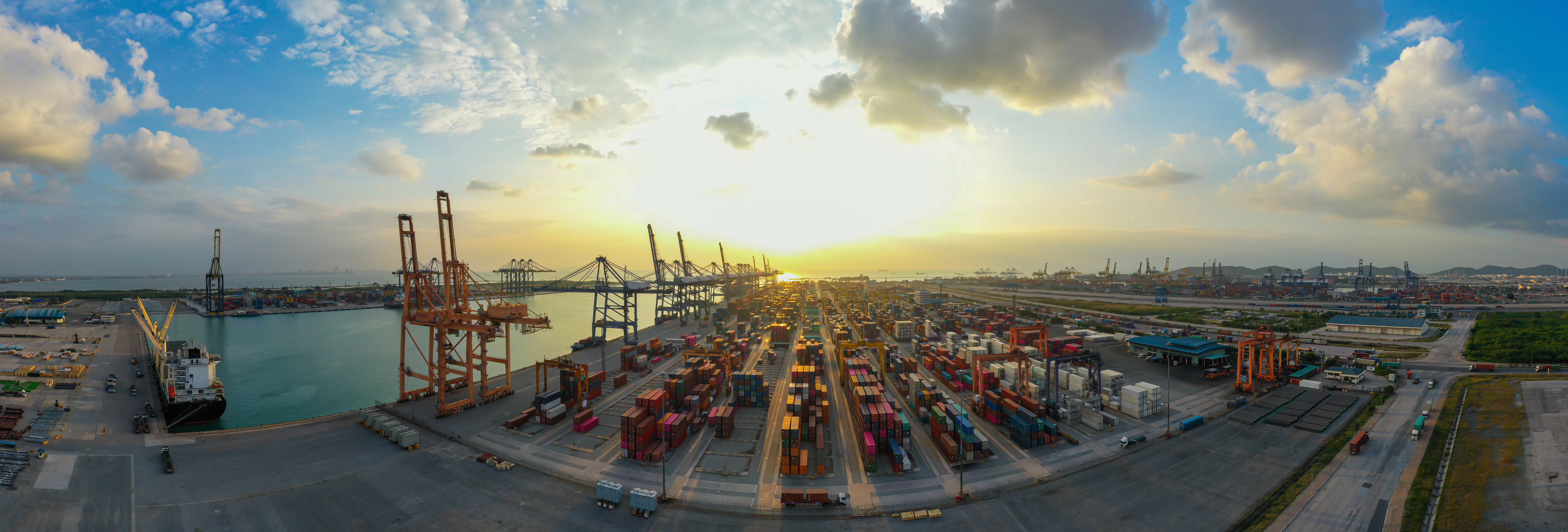P
ort strikes can have profound and far-reaching impacts on both exports and imports, disrupting supply chains and affecting economies on a global scale. Let’s delve into how these strikes influence various aspects of trade and logistics.The Toll of Port Strikes
Port strikes greatly impact supply chain constraints, disrupting the seamless flow of goods and creating significant logistical challenges. When port workers go on strike, the immediate halt in operations affects the availability and movement of both imports and exports. This disruption leads to container shortages, increased transportation costs, and delays in delivering essential goods and ingredients. The ripple effects of these strikes extend beyond the ports, affecting trucking, rail, and other modes of transportation, thereby amplifying the economic impact. As a result, businesses face heightened supply chain constraints, struggling to maintain inventory levels and meet customer demands in a timely manner. It is crucial for businesses to take proactive measures to understand and mitigate these impacts, as this is key to maintaining the stability and efficiency of global trade networks.
Obstacles in Importing Goods
Port strikes pose significant challenges for imports due to their immediate impact on availability and movement of goods, which specifically impact:
- Supply Chain Constraints: Port strikes exacerbate existing supply chain constraints. For example, during the COVID-19 pandemic, the availability of containers was already a significant issue. A port strike would further strain this limited resource, impacting the timely delivery of goods.
- Container Availability: The availability of empty containers is crucial for imports. When port services are disrupted, the movement of empty containers is also affected. This can lead to a shortage of containers, making it difficult for importers to receive their goods.
- Increased Costs: With port services halted, companies may need to switch to more expensive transportation options, such as trucks. This increases costs and adds to congestion at border crossings, leading to further delays.
Challenges in Exporting Goods
Exporters rely heavily on ports to move goods for international shipping. When port strikes occur, these goods can be delayed significantly, resulting in:
- Vessel Schedules and Port Congestion: Port strikes can disrupt vessel schedules, leading to congestion at ports. When port services are halted, goods that would typically be transported are rerouted to other modes of transportation, such as trucks. This shift can overwhelm port facilities, causing delays in loading and unloading cargo.
- Booking Delays: Exporters face significant booking delays during port strikes. With fewer port workers available, shipments are postponed, sometimes by weeks. This delay can lead to missed deadlines and lost business opportunities.
- No-Sale Weeks: Shipping lines may decide to skip certain ports during a strike, leading to “no-sale weeks.” This means that goods intended for export may remain in warehouses, waiting for the next available shipment.
- Port Cut Dates: Changes in port cut dates, which determine when goods need to be ready for transport, can further complicate logistics. These changes affect when exporters can obtain empty containers and move their cargo.
- Logistical Backlogs: Delays at ports have long tails to unwind. From backed-up cargo that needs to be expedited to the transit times of the entire logistics network slowing down, it can take months to get back on track across the entire network.
Broader Implications for Global Supply Chains
The interconnected nature of global supply chains means that disruptions in one region can have cascading effects worldwide.
- Global Supply Chains: Port strikes in one country can ripple effect on global supply chains. For instance, a port lockout in Canada can disrupt North American exports, adding pressure to international transport networks.
- Economic Stability: Prolonged port strikes can threaten economic stability by disrupting the flow of essential goods, including food, fuel, and raw materials. This can lead to shortages and increased prices, affecting both consumers and businesses.
- Lobbying and Advocacy: Businesses often work with influential groups and lobby for solutions to mitigate the impact of port strikes. These efforts are crucial in communicating industries' needs and finding ways to keep goods moving despite disruptions.
The Importance of Considering Domestic Supply
- Reduced Dependency on Imports: By sourcing products domestically, businesses can reduce their dependency on imports, which are often delayed or disrupted during port strikes. This ensures a more stable and reliable supply chain.
- Cost Efficiency: Domestic supply chains are less affected by international logistics issues, such as port congestion and container shortages. This can lead to cost savings, as businesses avoid the higher expenses associated with alternative transportation methods like trucking.
- Faster Lead Times: Domestic suppliers can often provide faster lead times compared to international suppliers, especially during disruptions. This helps businesses maintain their production schedules and meet customer demands more effectively.
- Support for Local Economy: Sourcing domestically supports local businesses and the economy. It also fosters stronger relationships with suppliers who are geographically closer, facilitating better communication and collaboration.
- Mitigating Risks: Diversifying supply sources to include domestic options helps mitigate risks associated with global supply chain disruptions. This strategic approach ensures that businesses have multiple avenues to obtain the necessary goods, even during challenging times.
Conclusion
Port strikes extend beyond temporary inconveniences; they significantly impact global trade and economic stability. The ripple effects are both profound and multifaceted, disrupting the flow of exports and imports and creating broader supply chain inefficiencies.
Effectively addressing these challenges necessitates a comprehensive strategy that includes contingency planning, investment in transportation infrastructure, and ongoing dialogue among stakeholders to mitigate the economic toll of such disruptions.

At PURIS, we proactively manage supply chain disruptions, such as port (and rail) strikes, by maintaining a robust domestic supply chain. This approach ensures our customers receive timely deliveries of ingredients across the United States, even during challenging periods. Rely on us to keep your operations running smoothly with dependable, local sourcing.
Learn more about our efforts to protect American supply and fair trade: https://blog.puris.com/puris-triumphs-as-itc-unanimously-supports-adcvd



